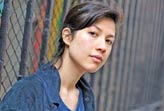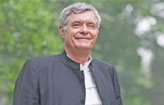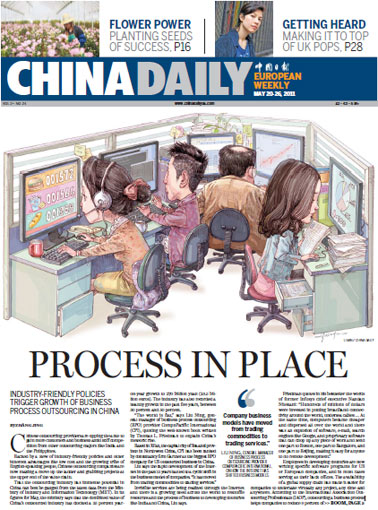Politics
Papers: Lenin had Jewish heritage
Updated: 2011-05-25 08:06
By Mansur Mirovalev (China Daily)
Documents say grandfather converted to avoid prejudice
MOSCOW - For the first time ever, ordinary Russians can now see documents that appear to confirm long-standing rumors that Vladimir Lenin had Jewish heritage.
In a country long plagued by anti-Semitism, such heritage can be a significant taint, especially for the founder of the Soviet Union who is still revered by many elderly Russians.
Among dozens of newly released documents on display at the State History Museum is a letter written by Lenin's eldest sister, Anna Ulyanova, saying that their maternal grandfather was a Ukrainian Jew who converted to Christianity to escape the Pale of Settlement and gain access to higher education.
"He came from a poor Jewish family and was, according to his baptismal certificate, the son of Moses Blank, a native of (the western Ukrainian city of) Zhitomir," Ulyanova wrote in a 1932 letter to Josef Stalin, who succeeded Lenin after his death in 1924.
"Vladimir Ilych had always thought of Jews highly," she wrote.
"I am very sorry that the fact of our origin - which I had suspected before - was not known during his lifetime."
Under czarist rule, most Jews were allowed permanent residence only in a restricted area that became known as the Pale of Settlement which included much of present-day Lithuania, Belarus, Poland, Moldova, Ukraine and parts of western Russia.
Many Jews joined the Bolsheviks to fight rampant anti-Semitism in czarist Russia and some were among its leaders when it took power in the 1917 October Revolution. Most prominent among them was Leon Trotsky, whose real name was Bronstein.
But Lenin, who was born Vladimir Ilych Ulyanov in 1870, identified himself only as Russian. He took Lenin as his pseudonym in 1901 while in Siberian exile near the Lena River.
Ulyanova asked Stalin to make Lenin's Jewish heritage known to counter the rise of anti-Semitism.
The exhibition in the museum on Red Square, near the mausoleum where Lenin's body still lies, also discloses that he was in such misery after suffering a stroke in 1922 that he asked Stalin to bring him poison.
"He did not incidentally pick Stalin to fulfill this request," Lenin's youngest sister, Maria Ulyanova, wrote in a 1922 diary entry.
"He knew Comrade Stalin as a steadfast Bolshevik, straight and devoid of any sentimentality. Who else would dare to end Lenin's life?"
Initially, Stalin promised to help Lenin, but other Politburo members decided to turn down his request, the letter says.
Trotsky, whom Stalin forced out of the Soviet Union, claimed in his memoirs that Stalin had poisoned Lenin.
The 111 documents on display, many of them only recently declassified, and the exhibition, which opened last week, runs through July 3.
Associated Press
E-paper

Thawing out
After a deep freeze in sales during the recession, China’s air conditioner makers are bouncing back
Cool Iron lady
Of good and evil
Build on security initiatives
Specials

Memory lanes
Shanghai’s historic ALLEYS not just unique architecture but a way of life

Great expectations
Hong Kong-born singer songwriter rises to the top of the UK pops.

A diplomat of character
Belgian envoy draws on personal fascination to help build China ties.
